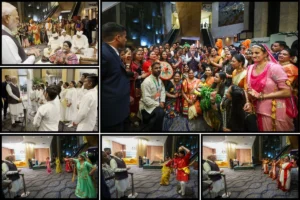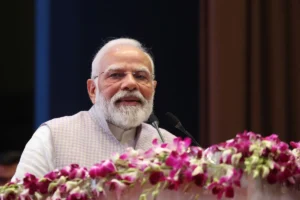
Muslim side moves to Apex court
In a significant development, the Allahabad High Court dismissed the appeal filed by the Gyanvapi Mosque committee challenging the Varanasi district court’s ruling permitting prayers in a cellar within the Gyanvapi mosque complex. Justice Rohit Ranjan Agarwal of the Allahabad HC delivered the judgment.
Justice Agarwal, while pronouncing the verdict, stated, “After thoroughly examining the case records and considering arguments from all parties involved, the court found no grounds to intervene in the district judge’s decision dated 17th January 2024 appointing the District Magistrate of Varanasi as the property receiver, as well as the order dated 31st January 2024 permitting Puja in the Tehkhana.”
The verdict marks a significant development in the ongoing legal battle surrounding the Gyanvapi mosque, reflecting the complex interplay of religious sentiments and legal provisions.
Supreme Court Appeal:
The Gyanvapi Mosque case has taken a new turn as the Muslim side has approached the Supreme Court after the Allahabad High Court upheld the District Court’s order permitting prayers in the cellar within the Gyanvapi mosque complex. This follows the rejection of all five petitions filed by the Muslim side by the Allahabad High Court, which also dismissed challenges against the Hindu side’s petition for performing puja inside Gyanvapi.
The Anjuman Arrangements Masjid Committee has contested the Allahabad High Court’s decision, arguing that the court’s interference in the Places of Worship Act of 1991 is a violation.
The High Court’s decision to expedite the hearing of the case within six months further underscores the urgency and significance of resolving the Gyanvapi dispute. With both sides steadfast in their claims, the legal battle continues to unfold, raising crucial questions about religious ownership and historical preservation.
Also read: Allahabad High Court Upholds Varanasi District Court’s Decision on Gyanvapi Mosque Prayers Dispute
Background:
The Varanasi district court’s ruling on January 31 allowed the Hindu side to conduct prayers in the southern cellar of the Gyanvapi mosque, known as the ‘Vyas Tehkhana.’ Additionally, the court directed the district magistrate to arrange for the Puja and a pujari nominated by the Shri Kashi Vishwanath Temple Trust.
Following this ruling, the Anjuman Intezamia Masajid Committee, which oversees the management of the Gyanvapi Mosque, challenged the decision before the Allahabad High Court on February 1. This move came after the Supreme Court declined an urgent hearing of the mosque committee’s plea.
Meanwhile, AIMIM president Asaduddin Owaisi criticized the Varanasi court’s decision, labeling it a “violation of the Places of Worship Act.” He questioned the judge’s knowledge about the presence of an idol inside, emphasizing the need for a fair appeal process.
As the Gyanvapi case navigates through legal channels, it remains a focal point for religious and cultural tensions. The Supreme Court’s intervention will likely shape the trajectory of the dispute, offering clarity on the interpretation of relevant laws and the resolution of conflicting claims. In the meantime, the Gyanvapi Mosque stands as a symbol of contested heritage, awaiting a definitive legal verdict.
To read more such news, download Bharat Express news apps



















